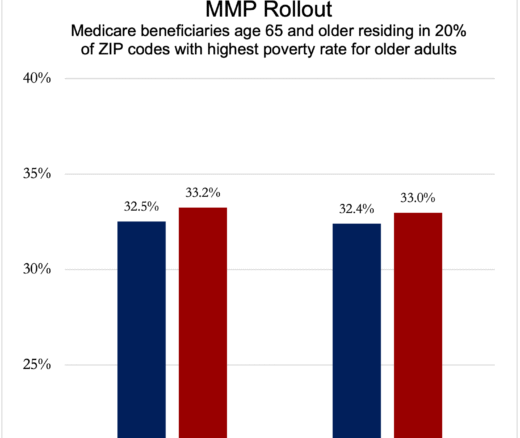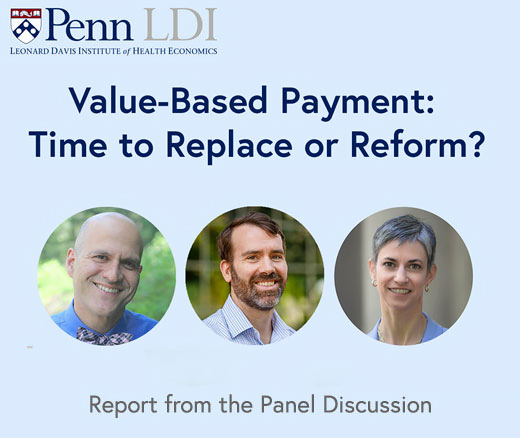
Integrated Care Plans Didn’t Boost Medicaid Enrollment for the Poorest Seniors
Chart of the Day: Medicare-Medicaid Plans—Created to Streamline Care for Dually Eligible Individuals—Failed to Increase Medicaid Participation in High-Poverty Communities
News | Video
A 22-member council of top health care economics and delivery experts convened by Health Affairs has issued a 54-page white paper outlining a sweeping set of recommendations for more effective control of U.S. health care costs. The title is “A Road Map for Action: Recommendations of The Health Affairs Council on Health Care Spending and Value.”
Launched in 2019, the Health Affairs Council on Health Care Spending and Value spent nearly four years analyzing the economics of U.S. health care. Its recommendations include federal and state monitoring measures designed to address the lack of competition in many markets across the country, and centralization of certain data collection systems, standardization of the current babel of quality measure metrics across health systems, payers and government agencies, and a rethinking of the value-based payment models that have not yet resulted in significant saving for payers, provider, or patients.
In the video above, University of Pennsylvania Leonard Davis Institute of Health Economics Executive Director Rachel M. Werner, MD, PhD, interviews Council Co-chair Bill Frist, MD, and member Mark Pauly, PhD, about the most important aspects of the findings. Frist is a former U.S. Senator who was Senate majority leader heavily involved in health care legislation. Pauly is a nationally renowned health economist from The Wharton School and a former Executive Director of LDI.
Hospital Consolidation Continues to Boost Costs, Narrow Access, and Impact Care Quality
A Penn LDI Virtual Seminar Unpacks the Challenging Contradictions of this Continuing Trend

Chart of the Day: Medicare-Medicaid Plans—Created to Streamline Care for Dually Eligible Individuals—Failed to Increase Medicaid Participation in High-Poverty Communities

Penn LDI Debates the Pros and Cons of Payment Reform

One of the Authors, Penn’s Kevin B. Johnson, Explains the Principles It Sets Out

Six Lessons the U.S. Can Learn from Europe About Protecting Health Data Linkages

Moving from Fee-for-Service to Risk-Based Contracts Hasn’t Dramatically Changed Patient Care, Raising Questions About How to Make These Models More Effective

Equitably Improving Care for Hospitalized Kids Who Experience Cardiac Arrest Requires Hospital-Level Changes, LDI Fellows Say